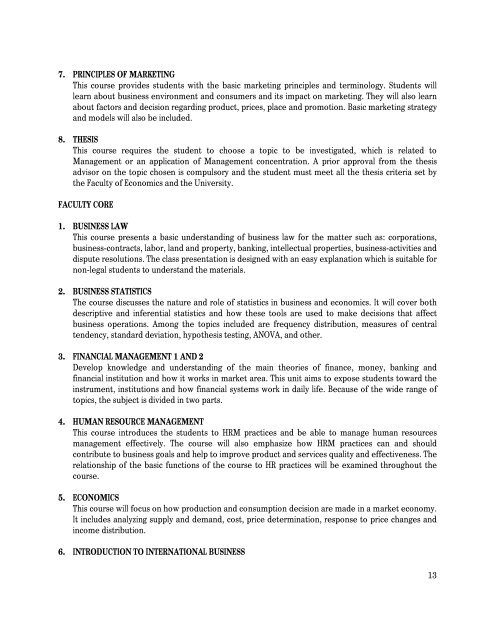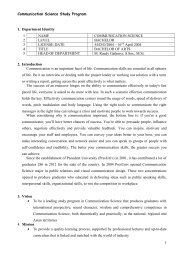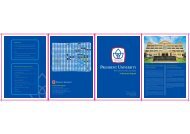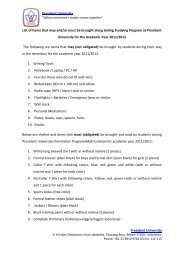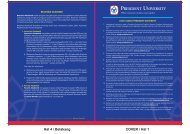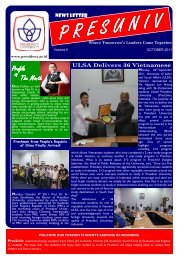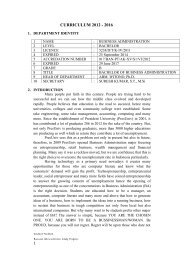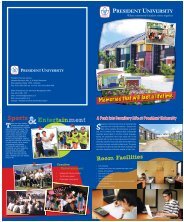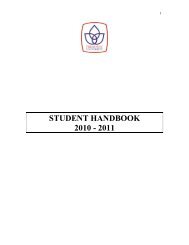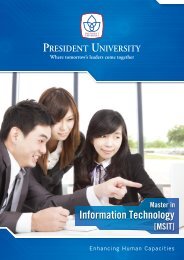Curriculum - President University
Curriculum - President University
Curriculum - President University
You also want an ePaper? Increase the reach of your titles
YUMPU automatically turns print PDFs into web optimized ePapers that Google loves.
7. PRINCIPLES OF MARKETING<br />
This course provides students with the basic marketing principles and terminology. Students will<br />
learn about business environment and consumers and its impact on marketing. They will also learn<br />
about factors and decision regarding product, prices, place and promotion. Basic marketing strategy<br />
and models will also be included.<br />
8. THESIS<br />
This course requires the student to choose a topic to be investigated, which is related to<br />
Management or an application of Management concentration. A prior approval from the thesis<br />
advisor on the topic chosen is compulsory and the student must meet all the thesis criteria set by<br />
the Faculty of Economics and the <strong>University</strong>.<br />
FACULTY CORE<br />
1. BUSINESS LAW<br />
This course presents a basic understanding of business law for the matter such as: corporations,<br />
business-contracts, labor, land and property, banking, intellectual properties, business-activities and<br />
dispute resolutions. The class presentation is designed with an easy explanation which is suitable for<br />
non-legal students to understand the materials.<br />
2. BUSINESS STATISTICS<br />
The course discusses the nature and role of statistics in business and economics. It will cover both<br />
descriptive and inferential statistics and how these tools are used to make decisions that affect<br />
business operations. Among the topics included are frequency distribution, measures of central<br />
tendency, standard deviation, hypothesis testing, ANOVA, and other.<br />
3. FINANCIAL MANAGEMENT 1 AND 2<br />
Develop knowledge and understanding of the main theories of finance, money, banking and<br />
financial institution and how it works in market area. This unit aims to expose students toward the<br />
instrument, institutions and how financial systems work in daily life. Because of the wide range of<br />
topics, the subject is divided in two parts.<br />
4. HUMAN RESOURCE MANAGEMENT<br />
This course introduces the students to HRM practices and be able to manage human resources<br />
management effectively. The course will also emphasize how HRM practices can and should<br />
contribute to business goals and help to improve product and services quality and effectiveness. The<br />
relationship of the basic functions of the course to HR practices will be examined throughout the<br />
course.<br />
5. ECONOMICS<br />
This course will focus on how production and consumption decision are made in a market economy.<br />
It includes analyzing supply and demand, cost, price determination, response to price changes and<br />
income distribution.<br />
6. INTRODUCTION TO INTERNATIONAL BUSINESS<br />
13


